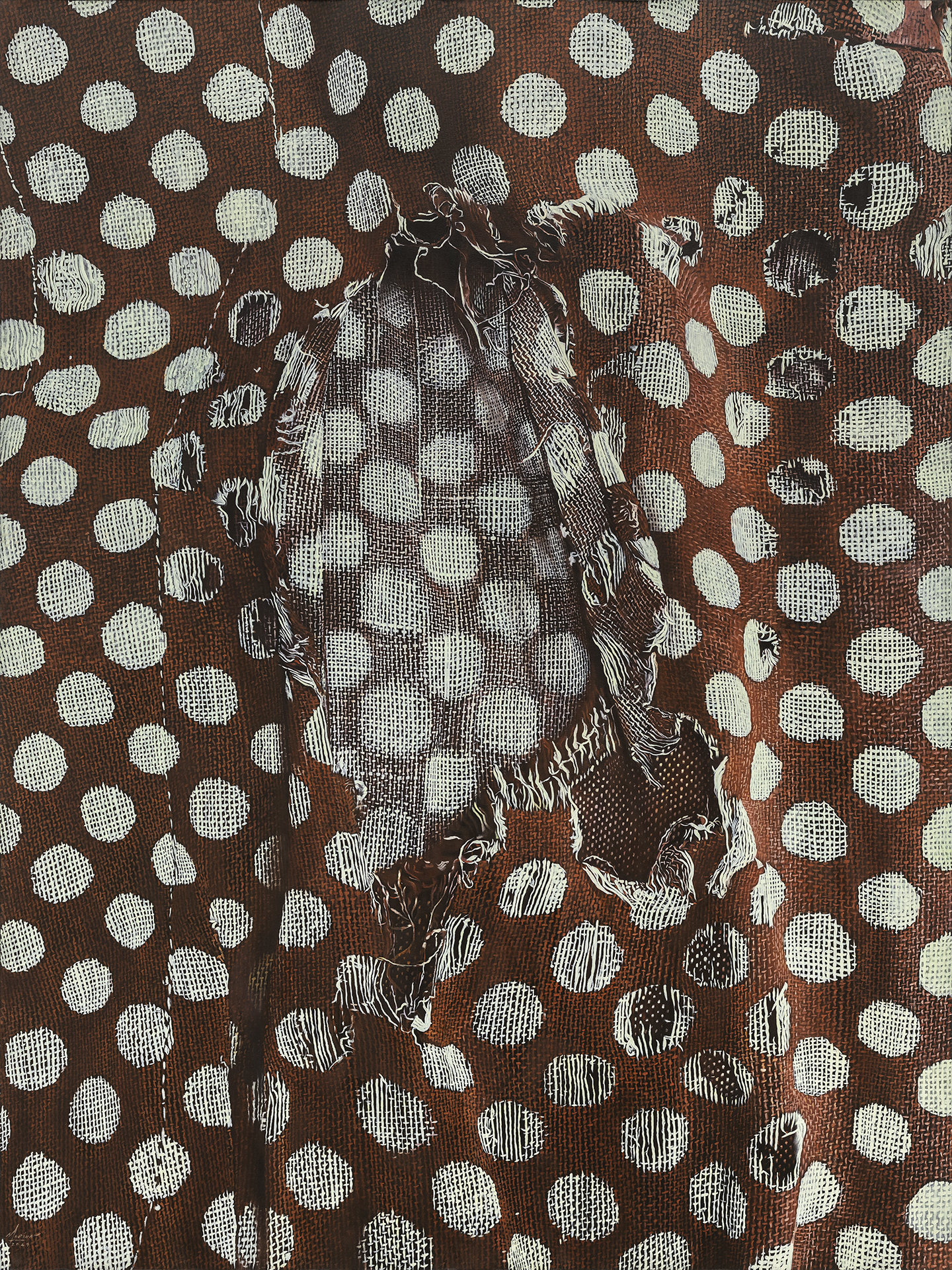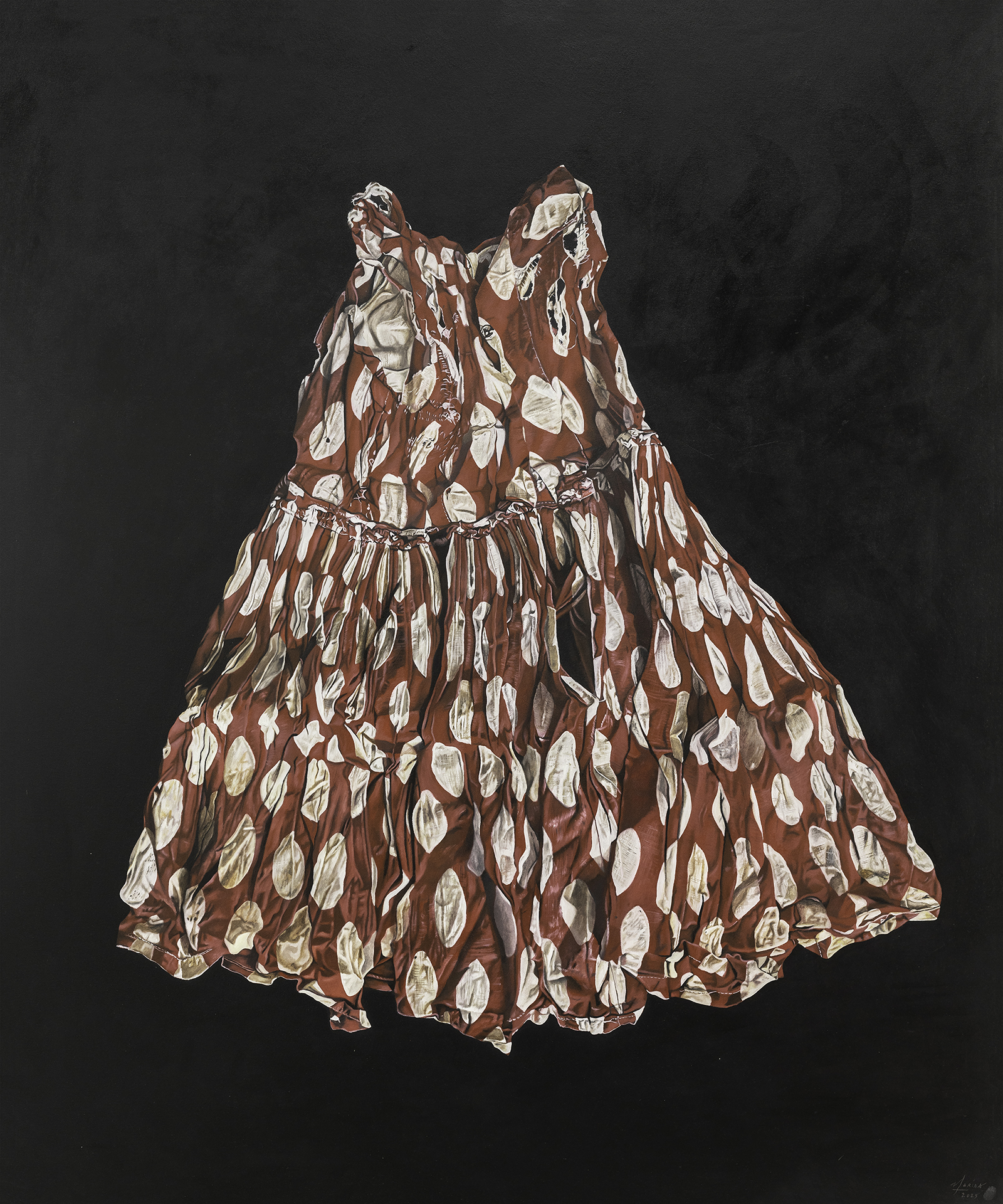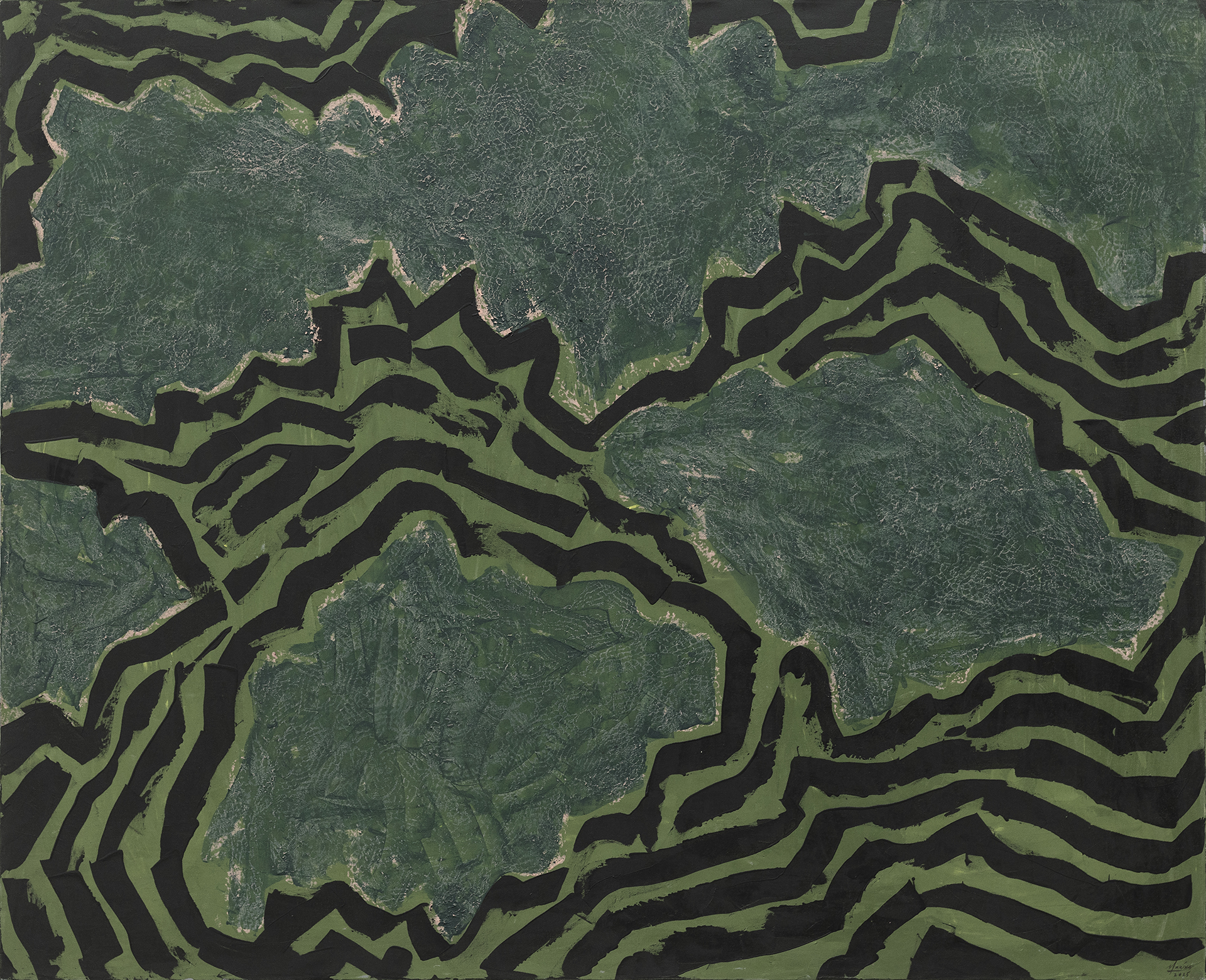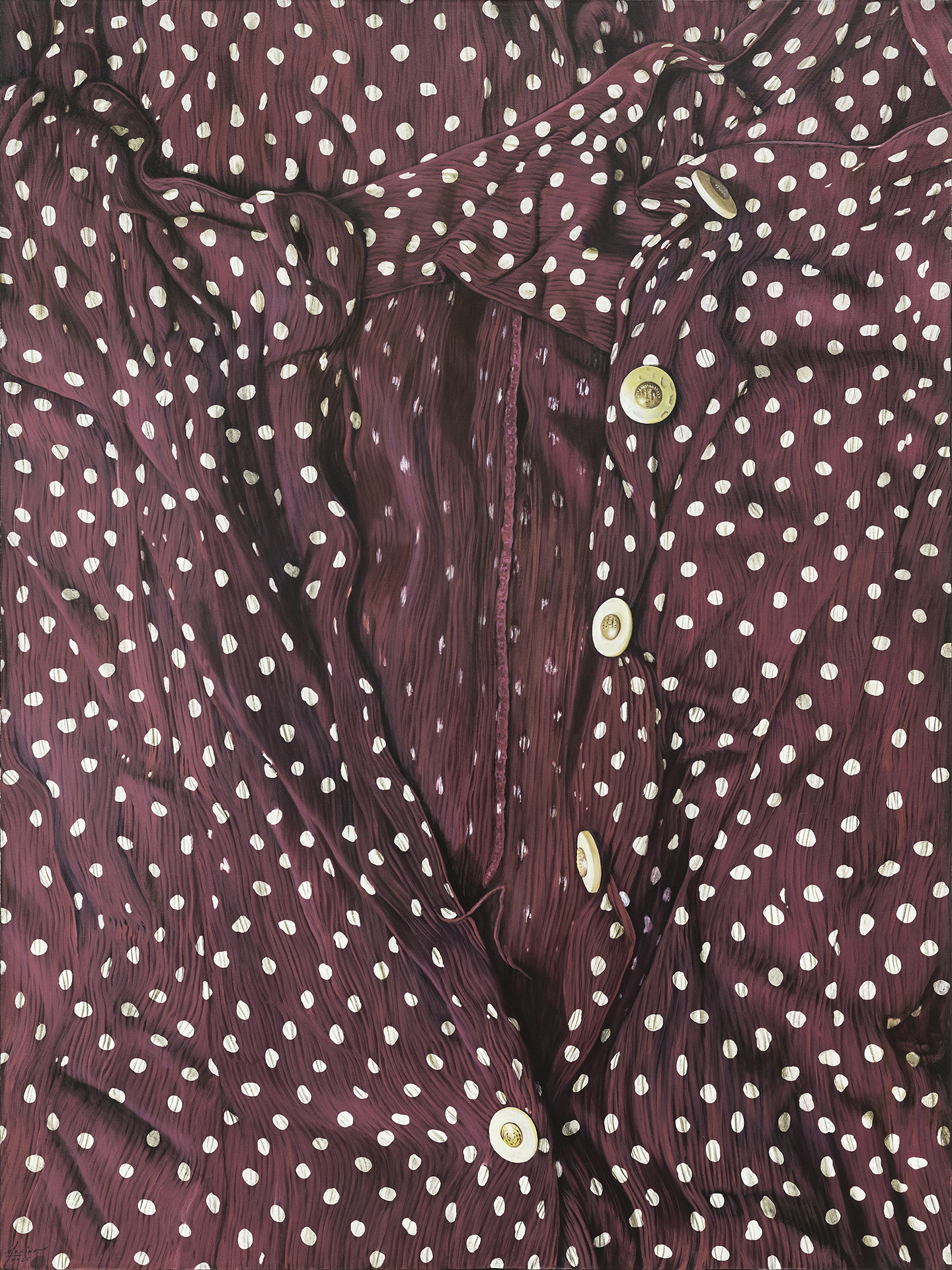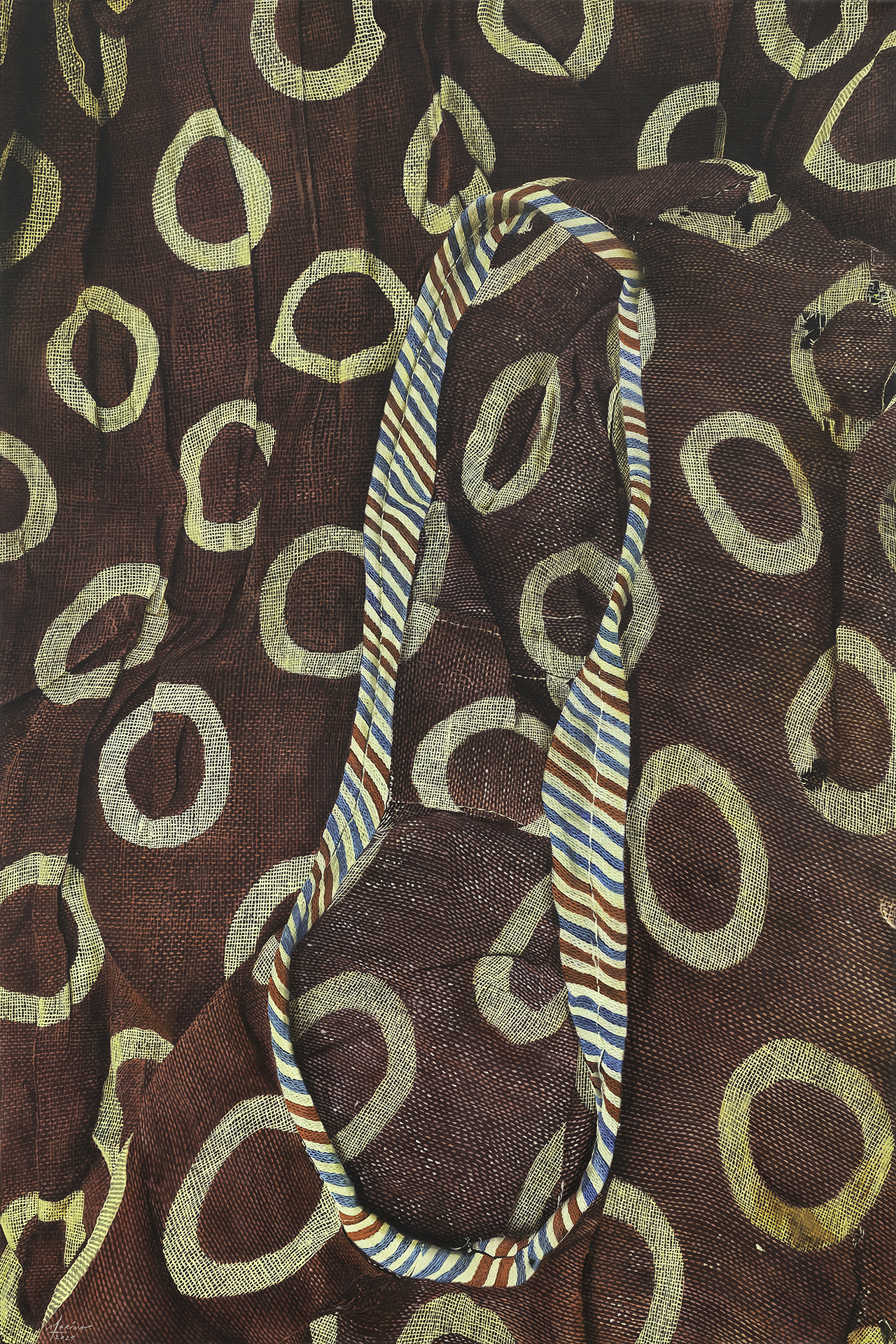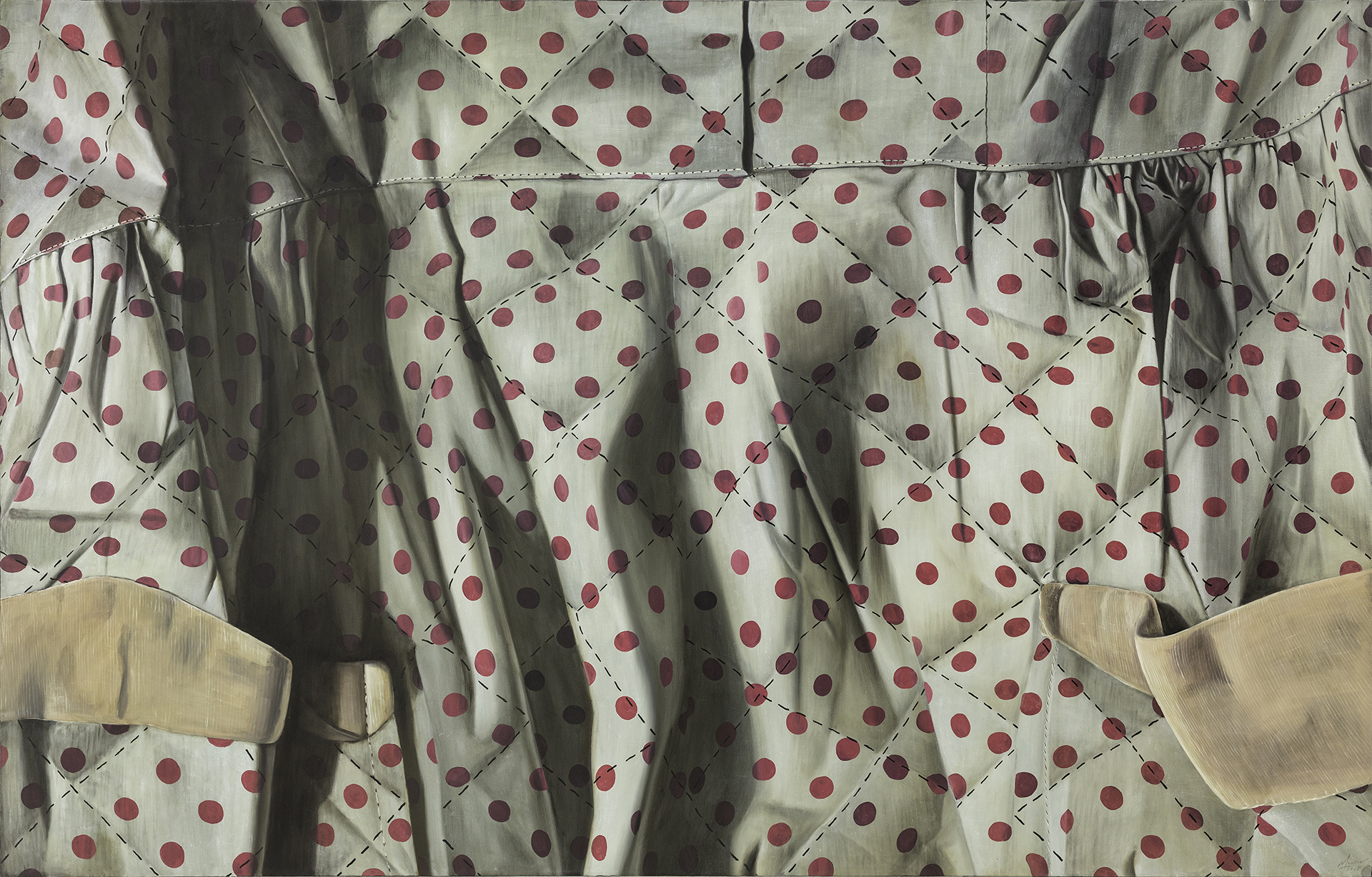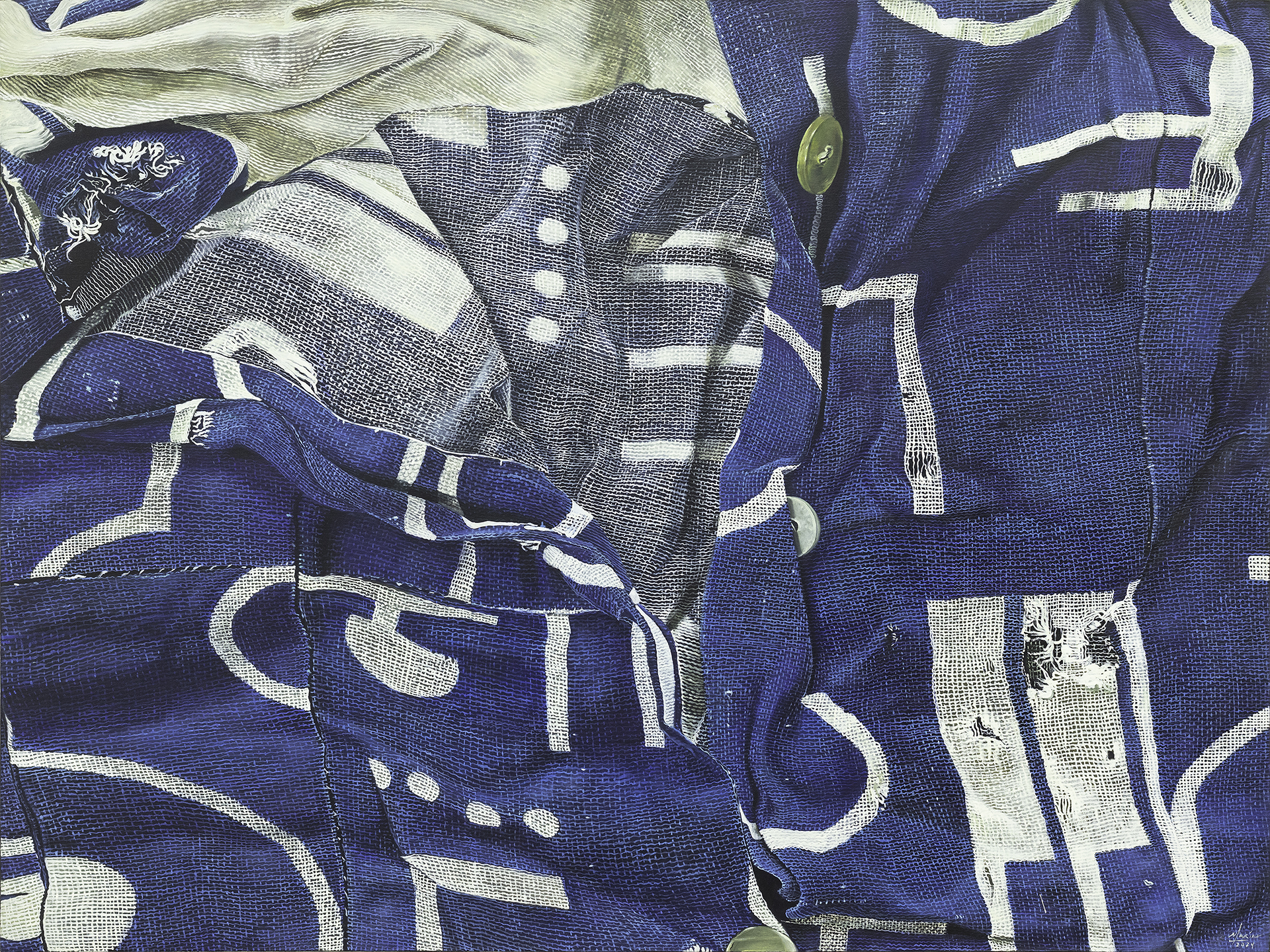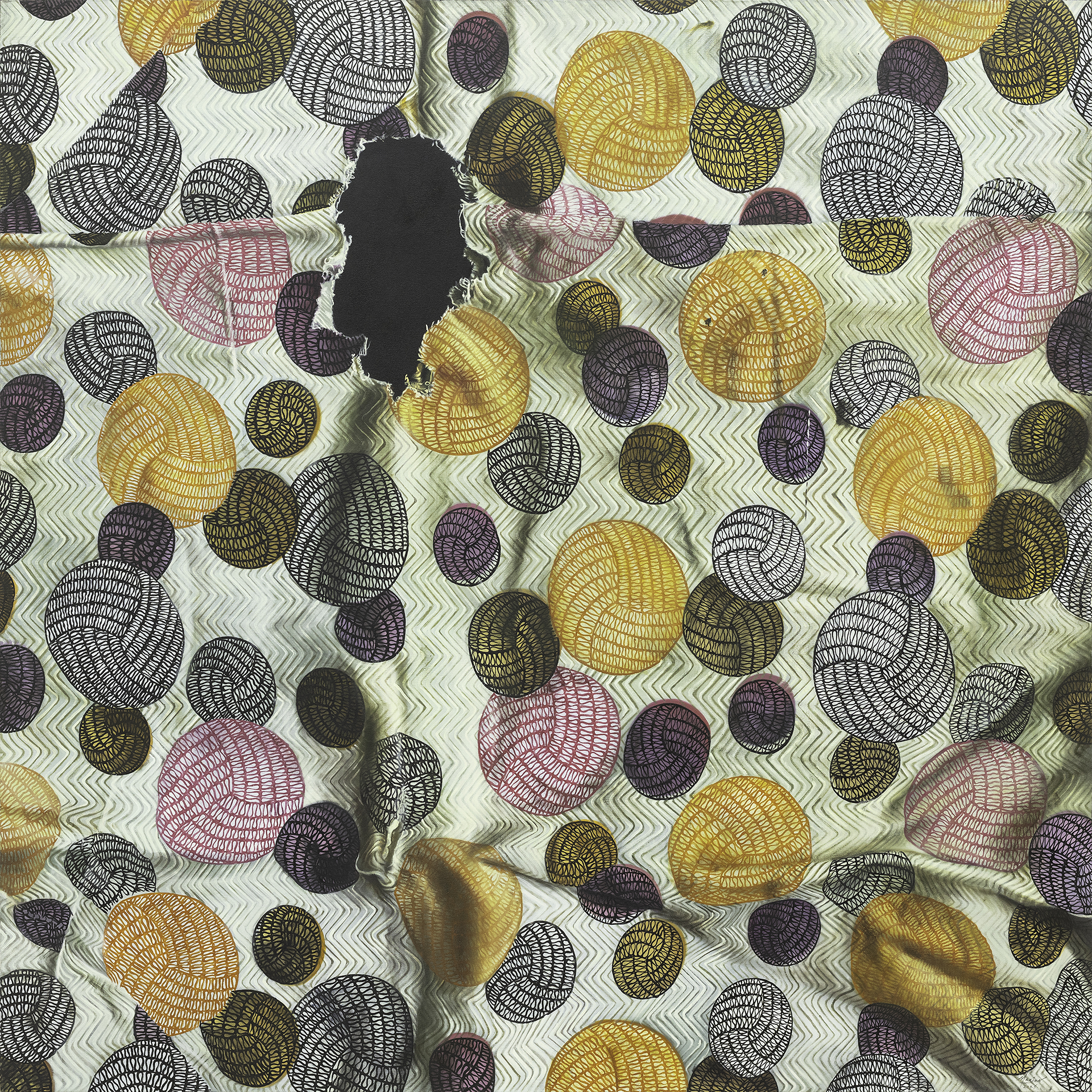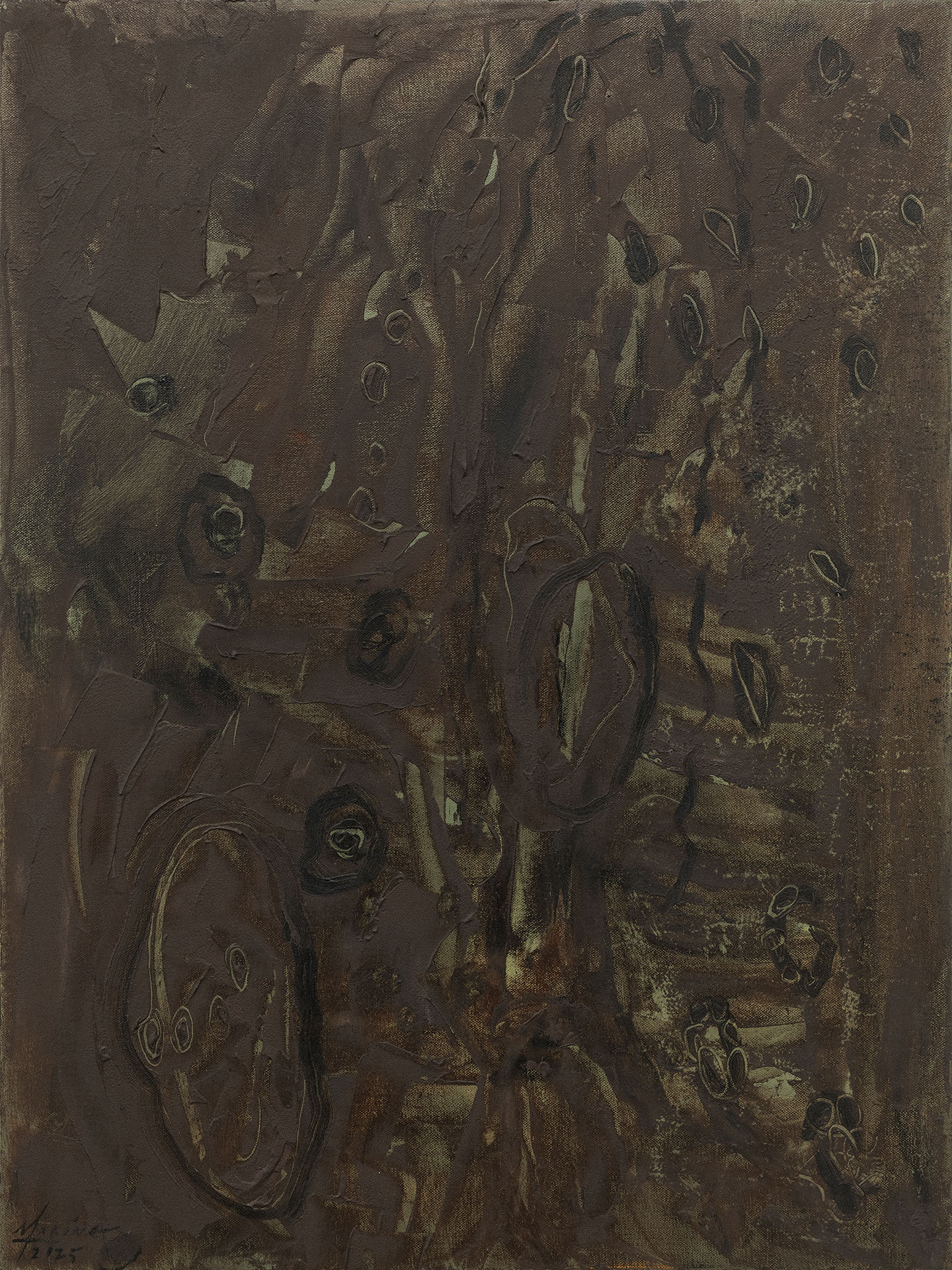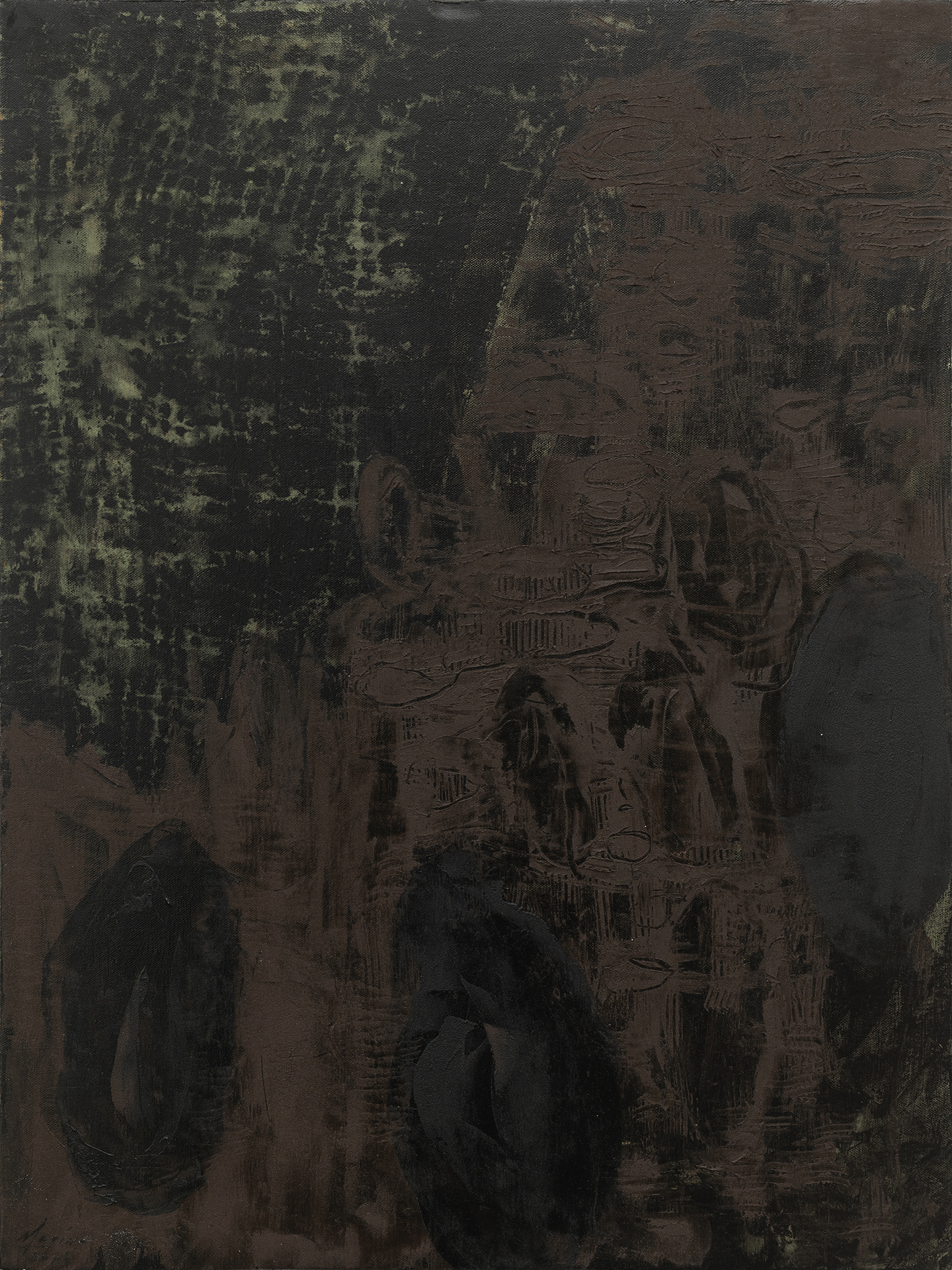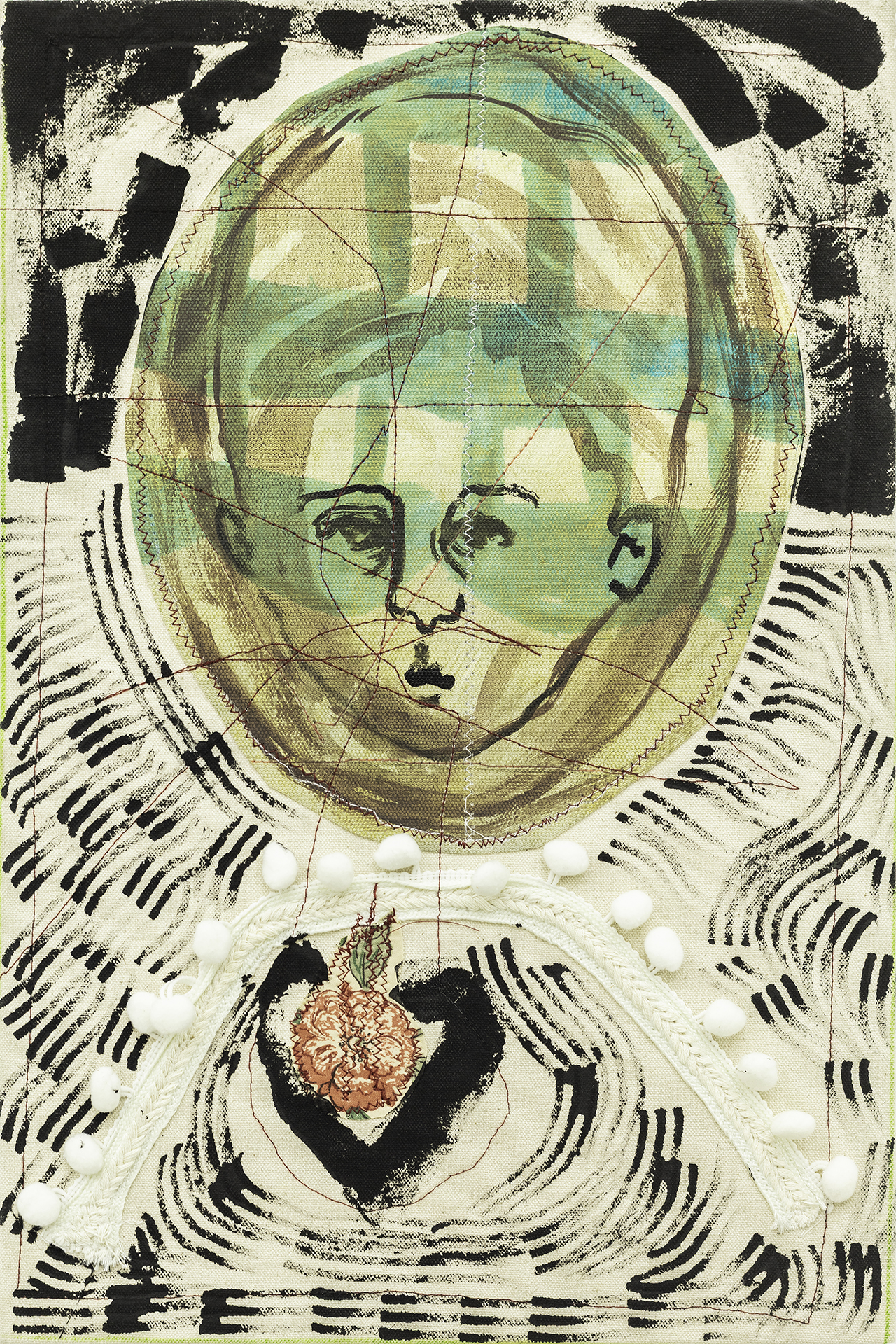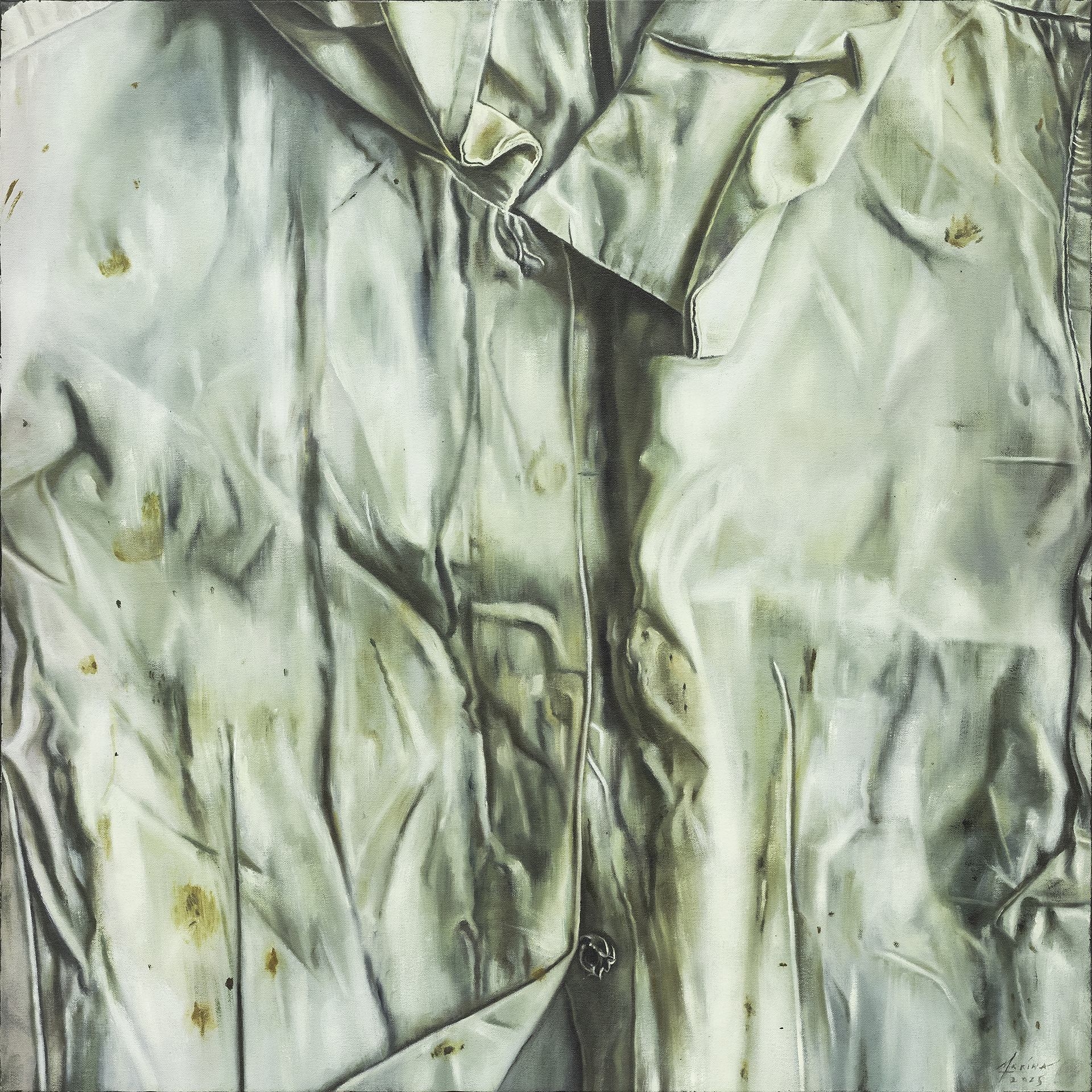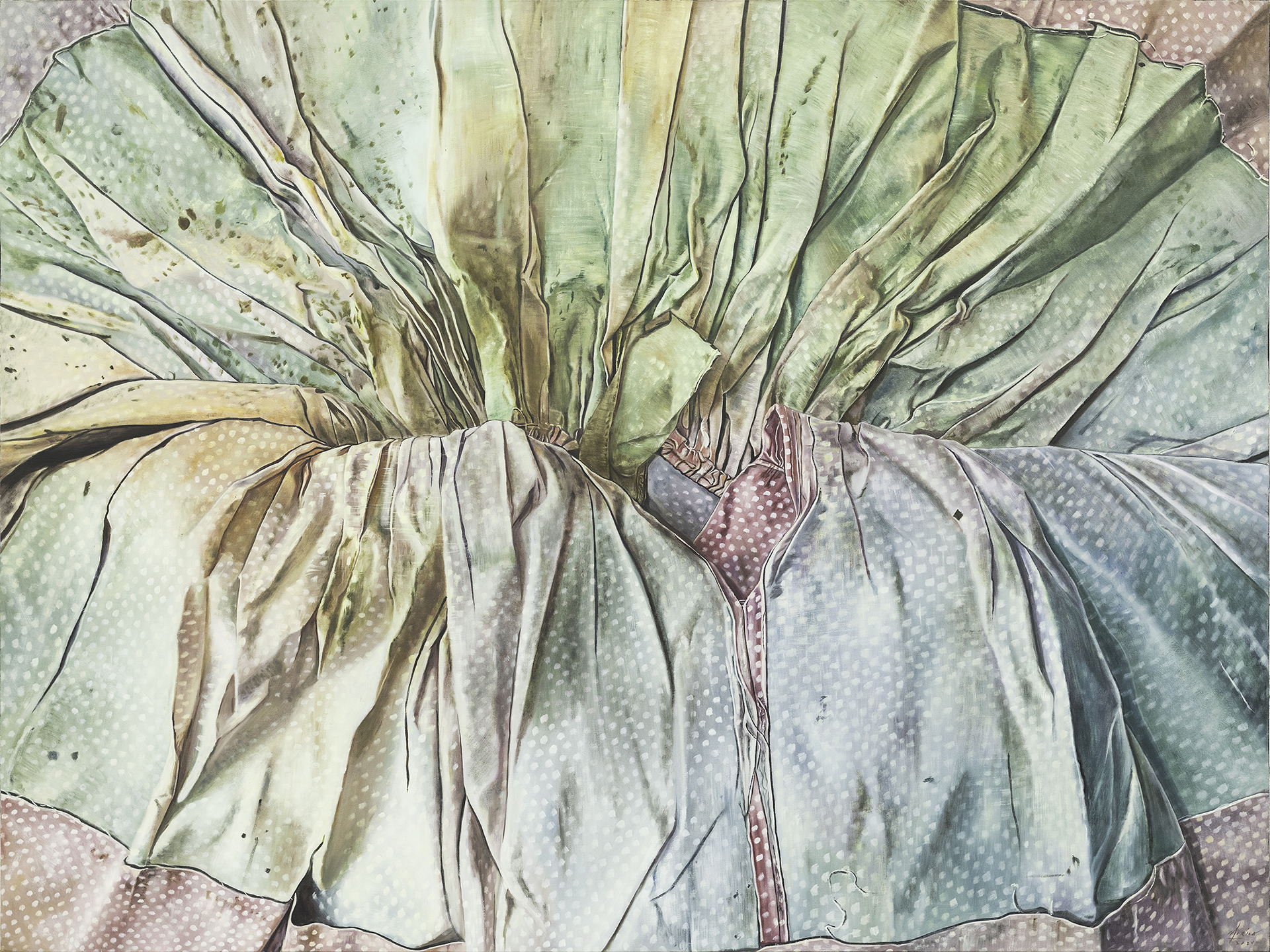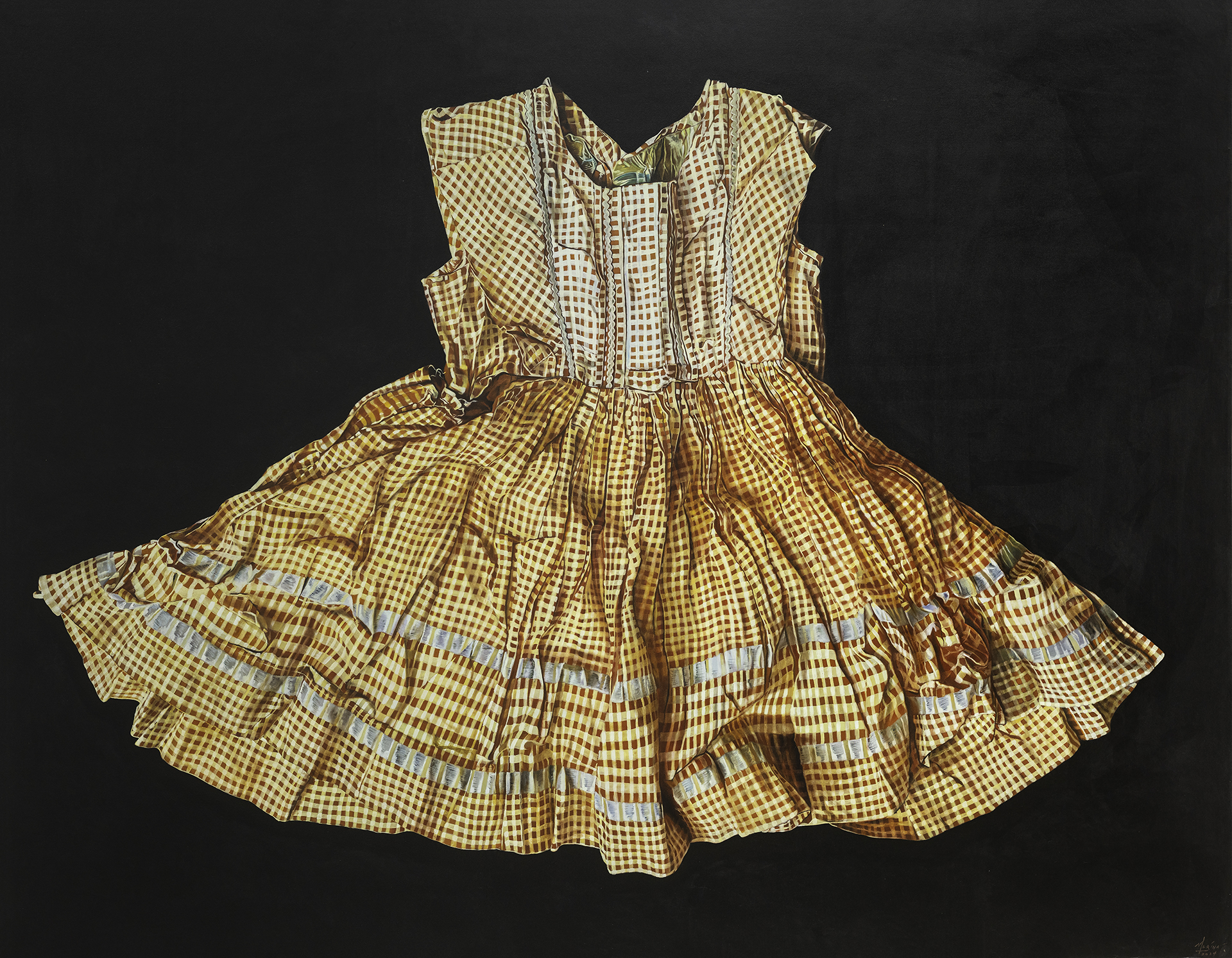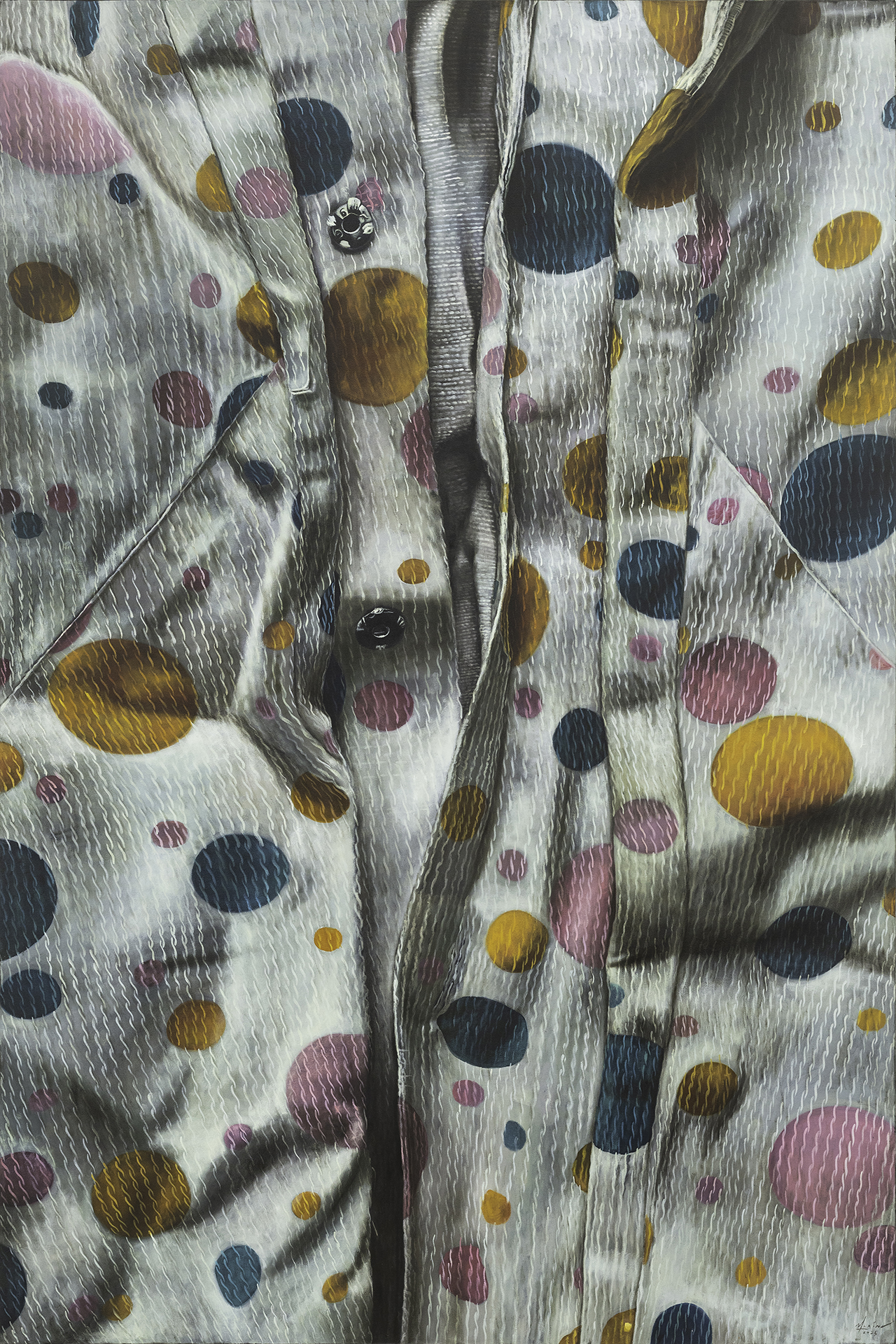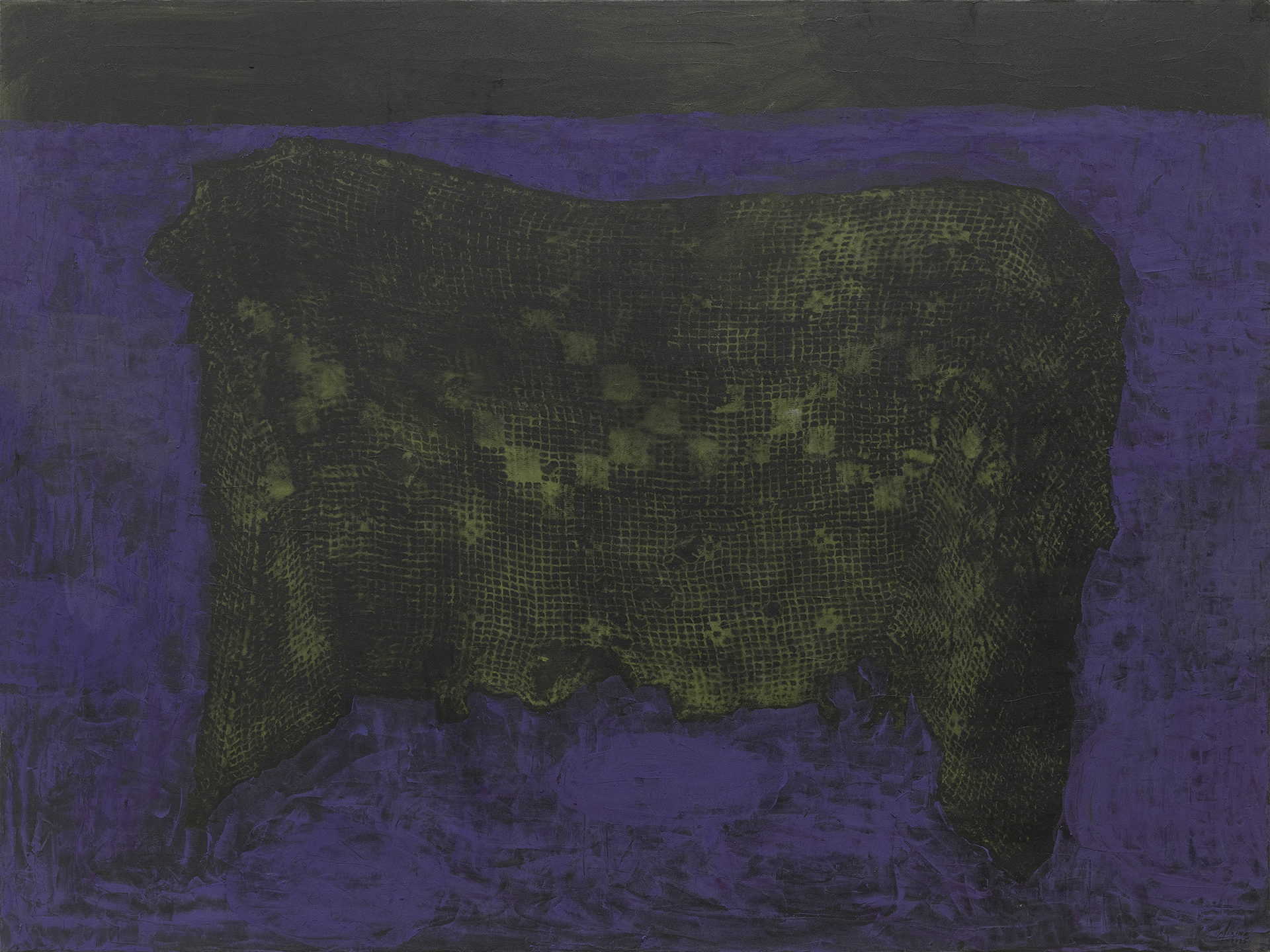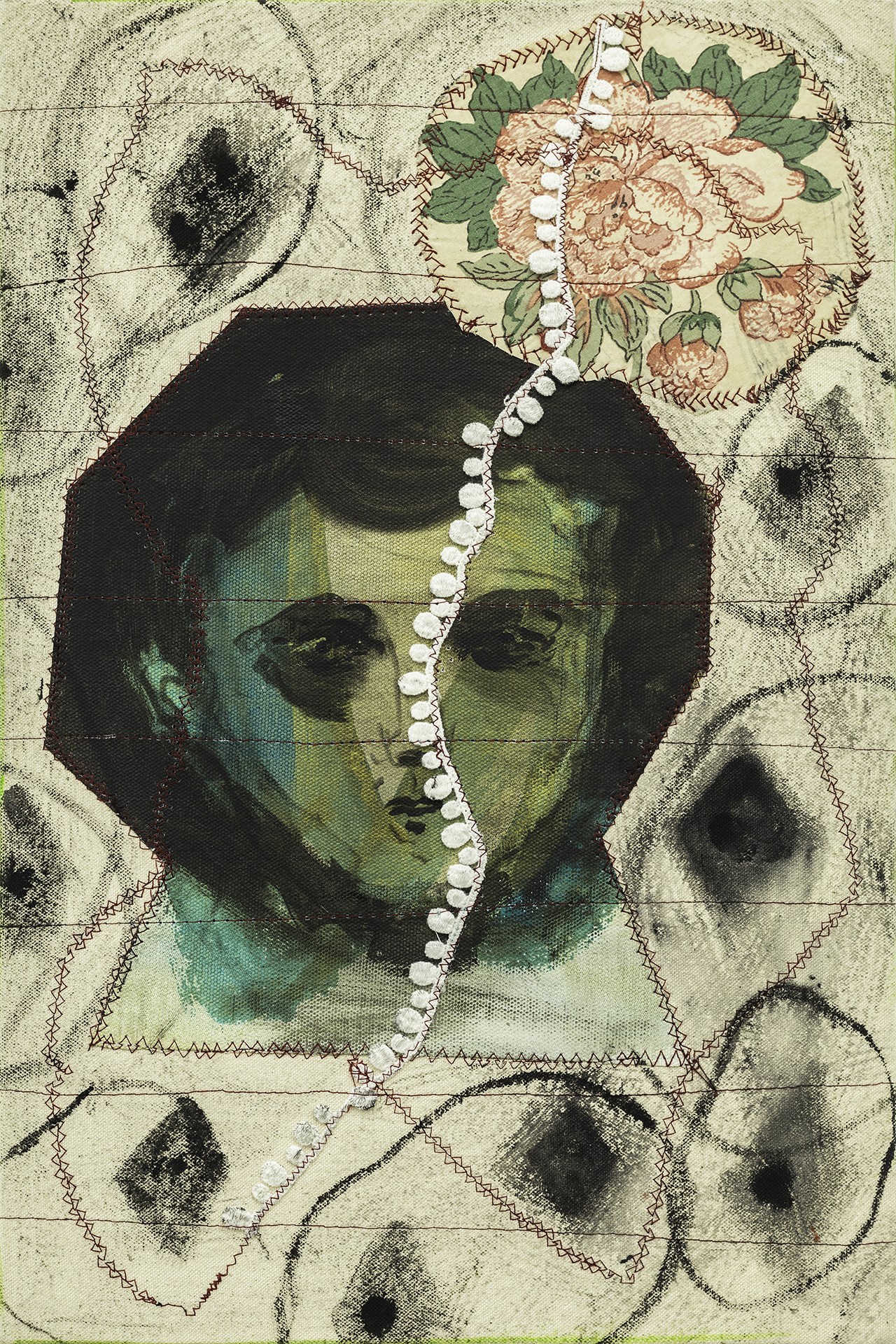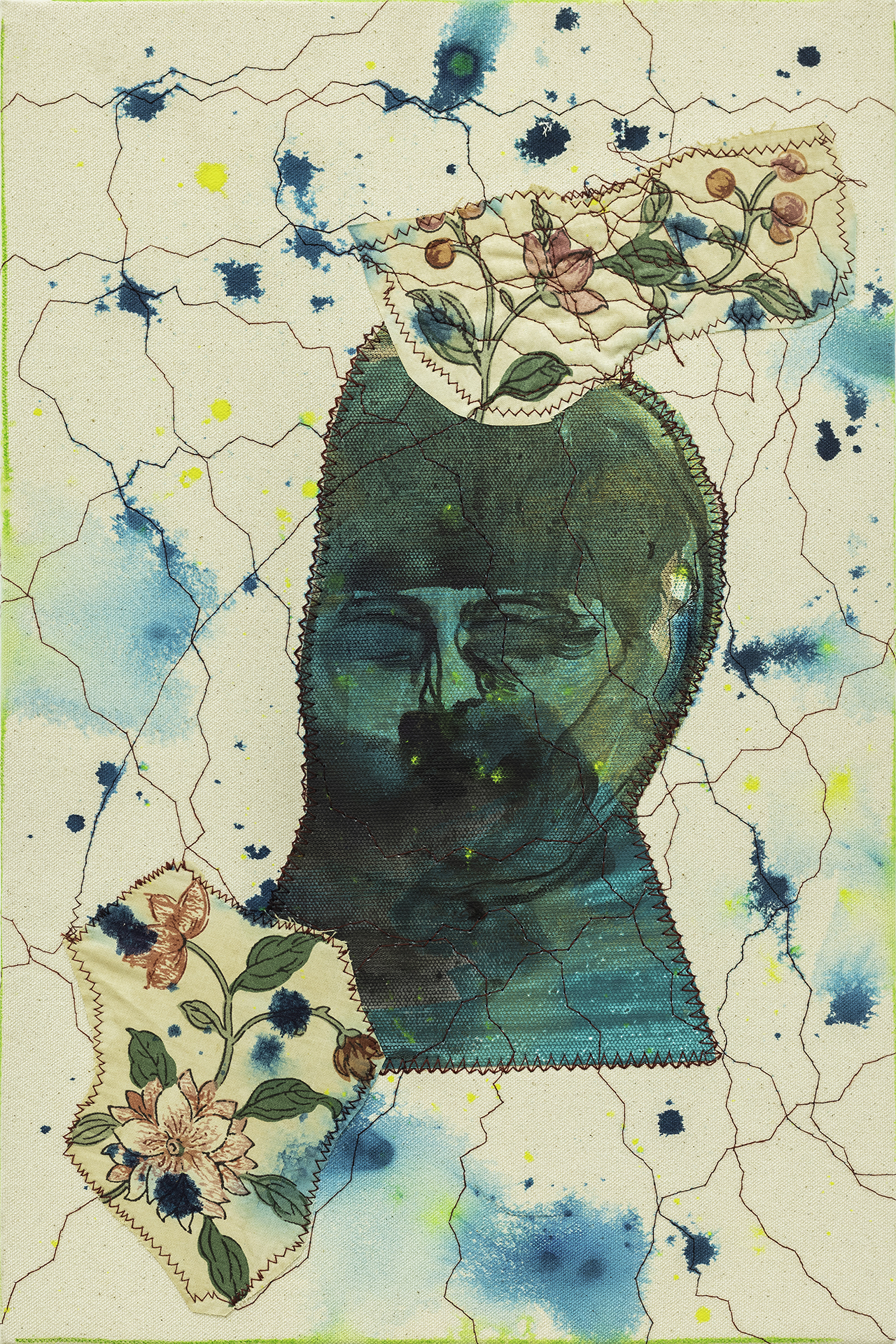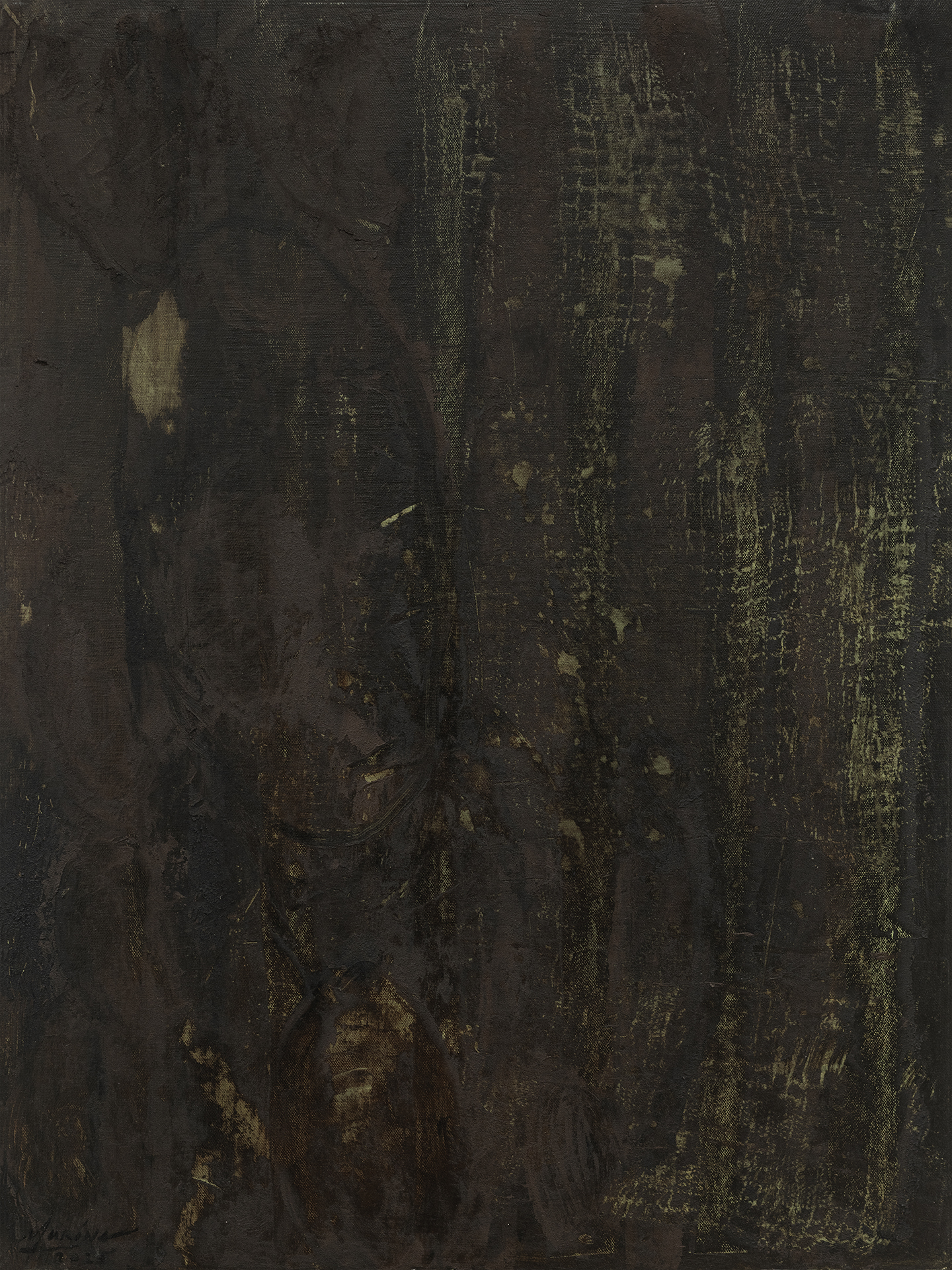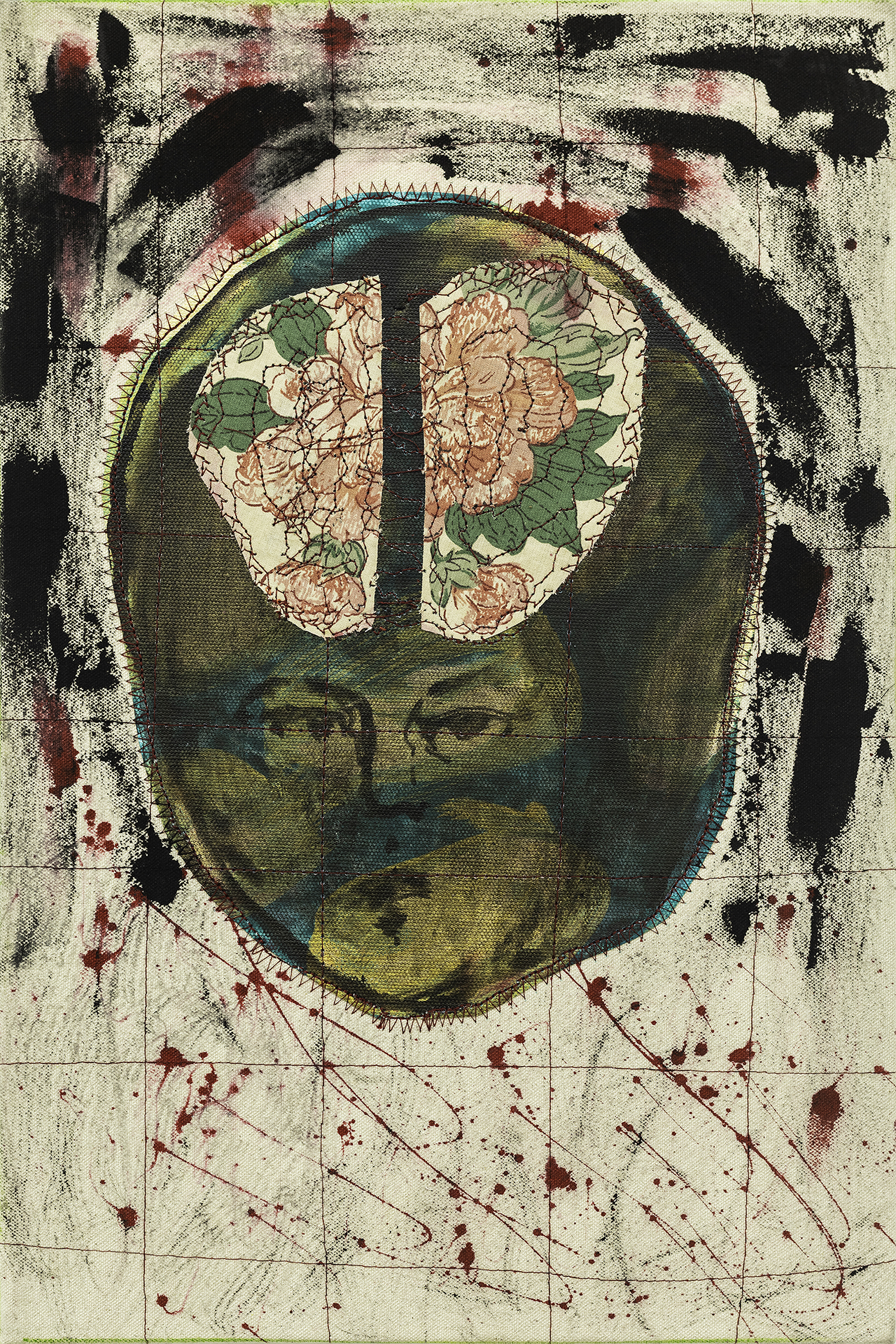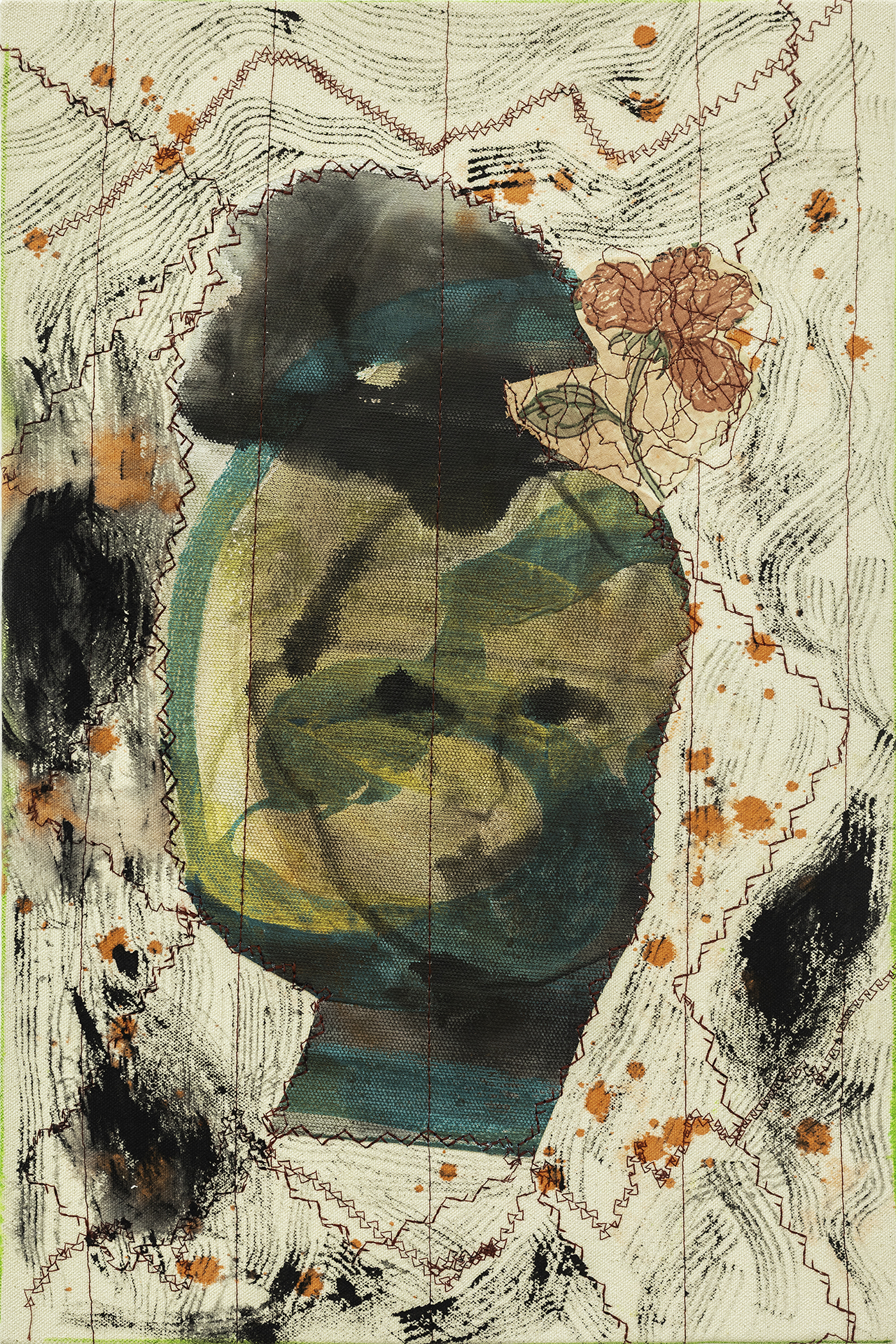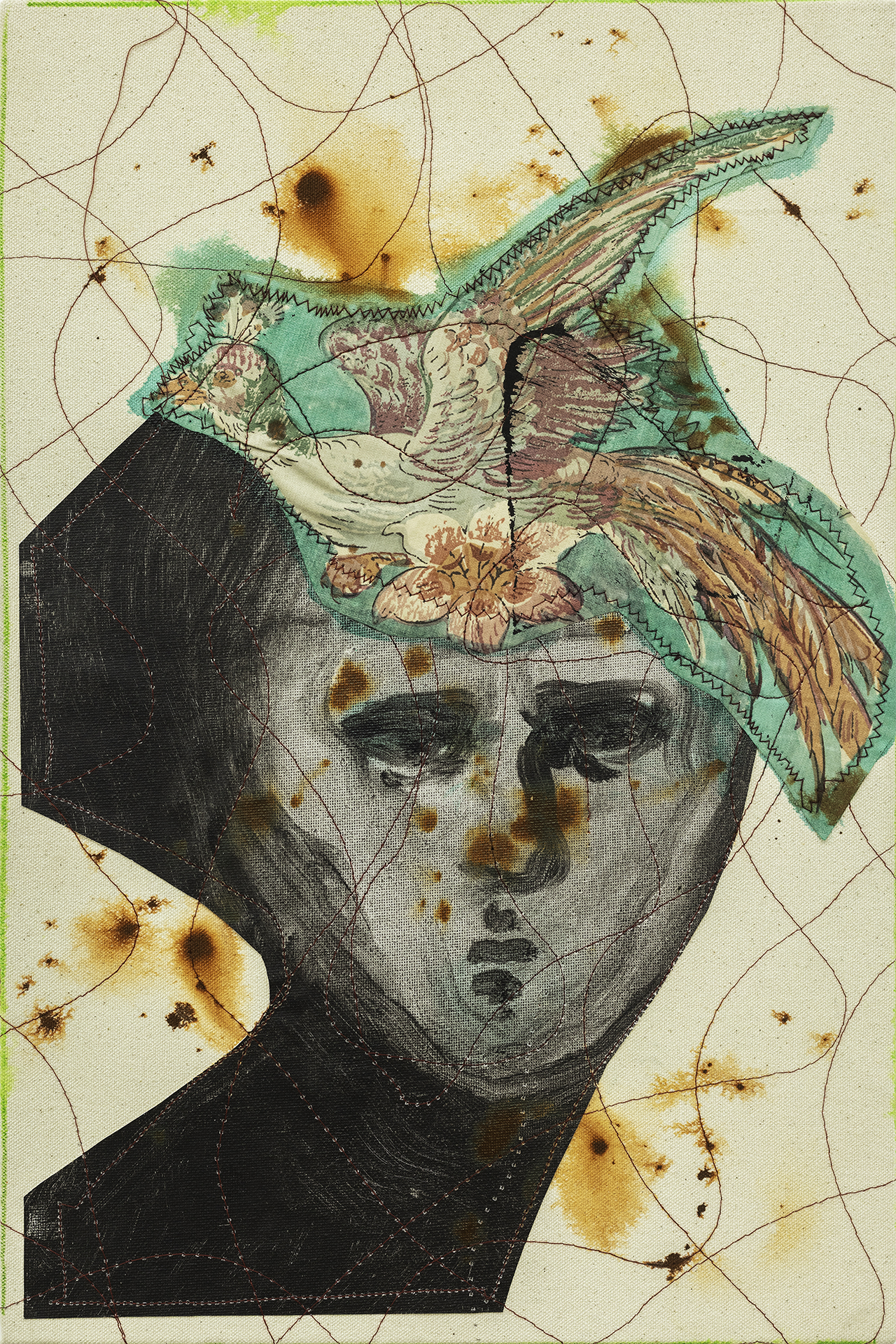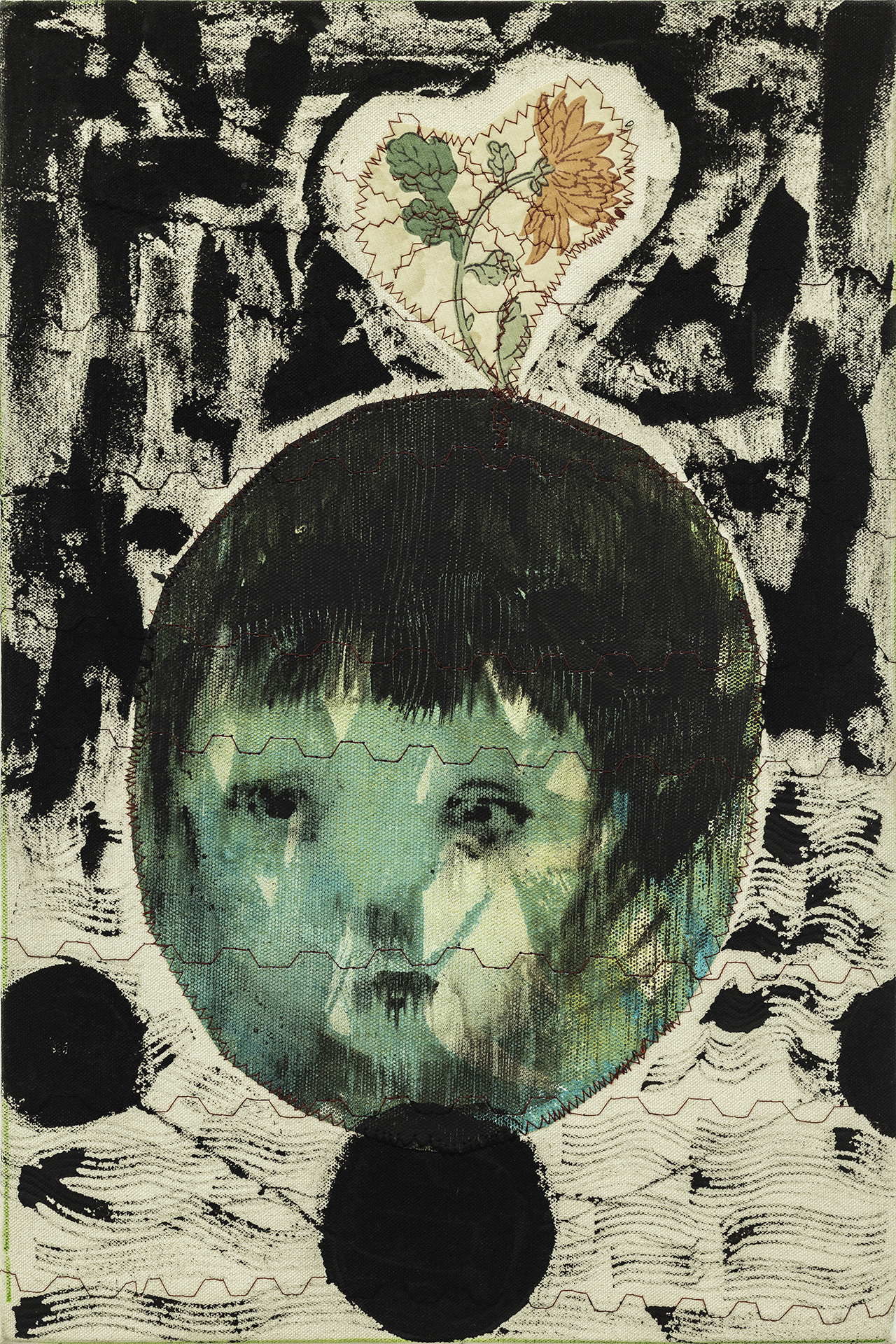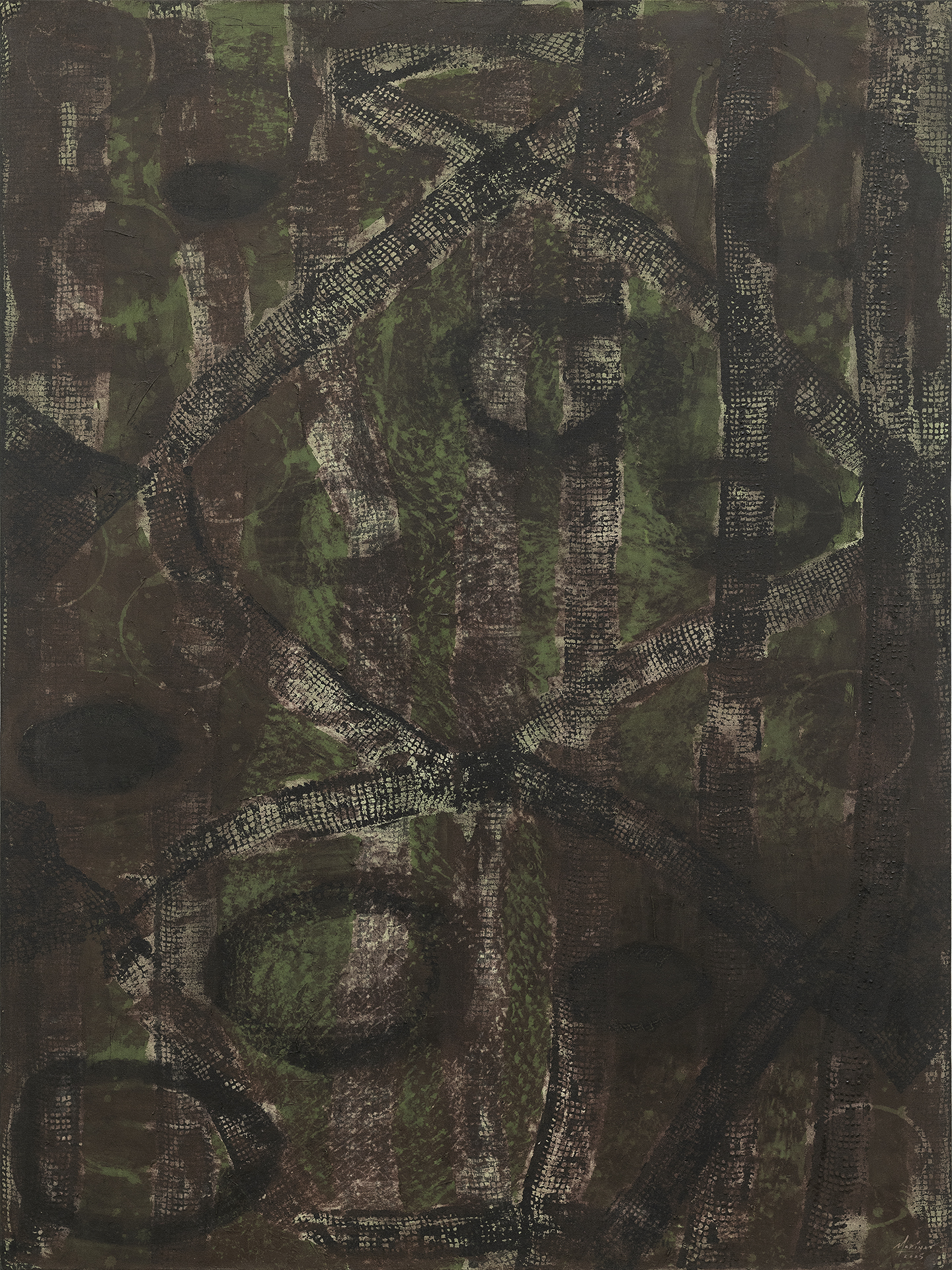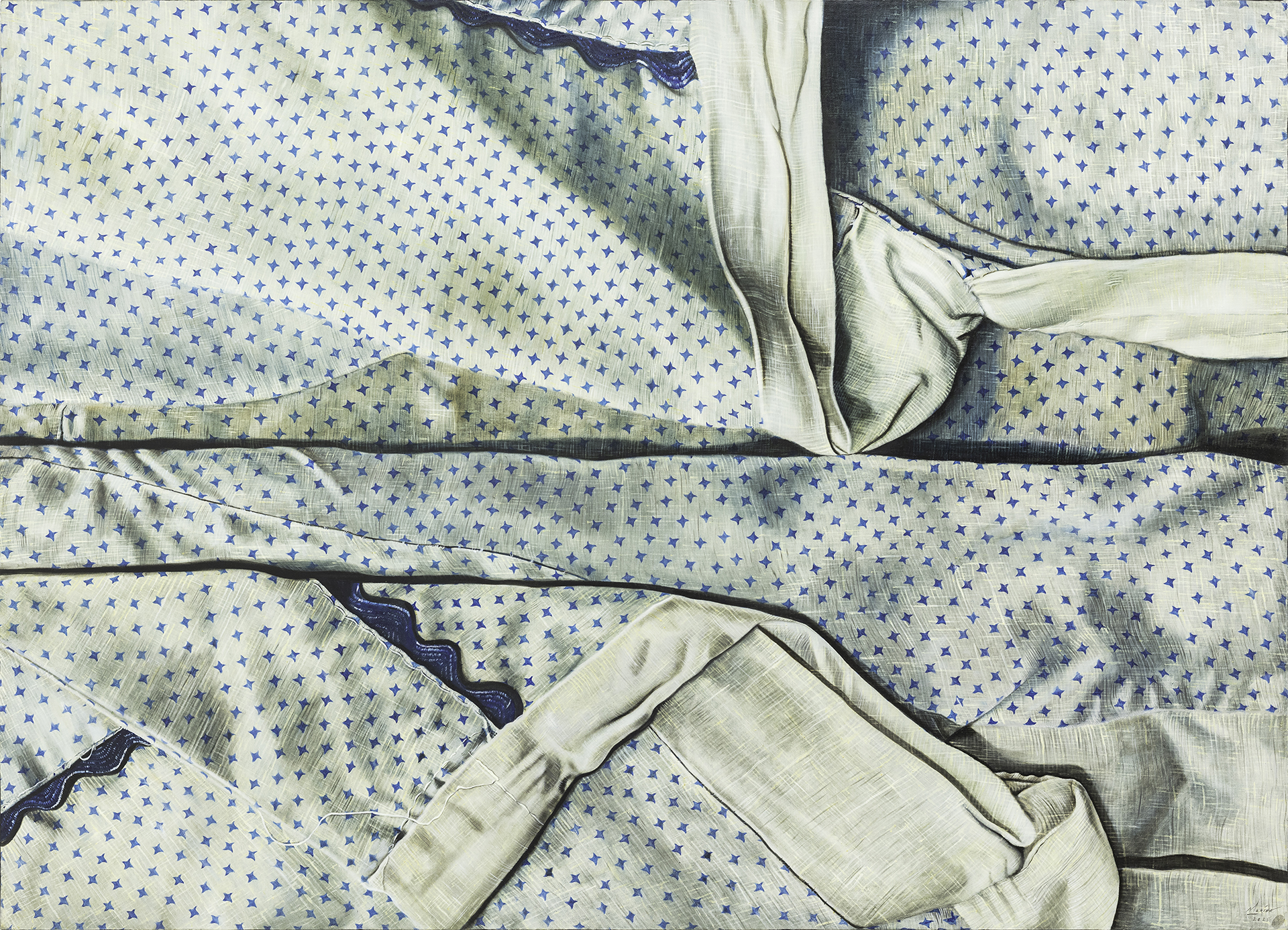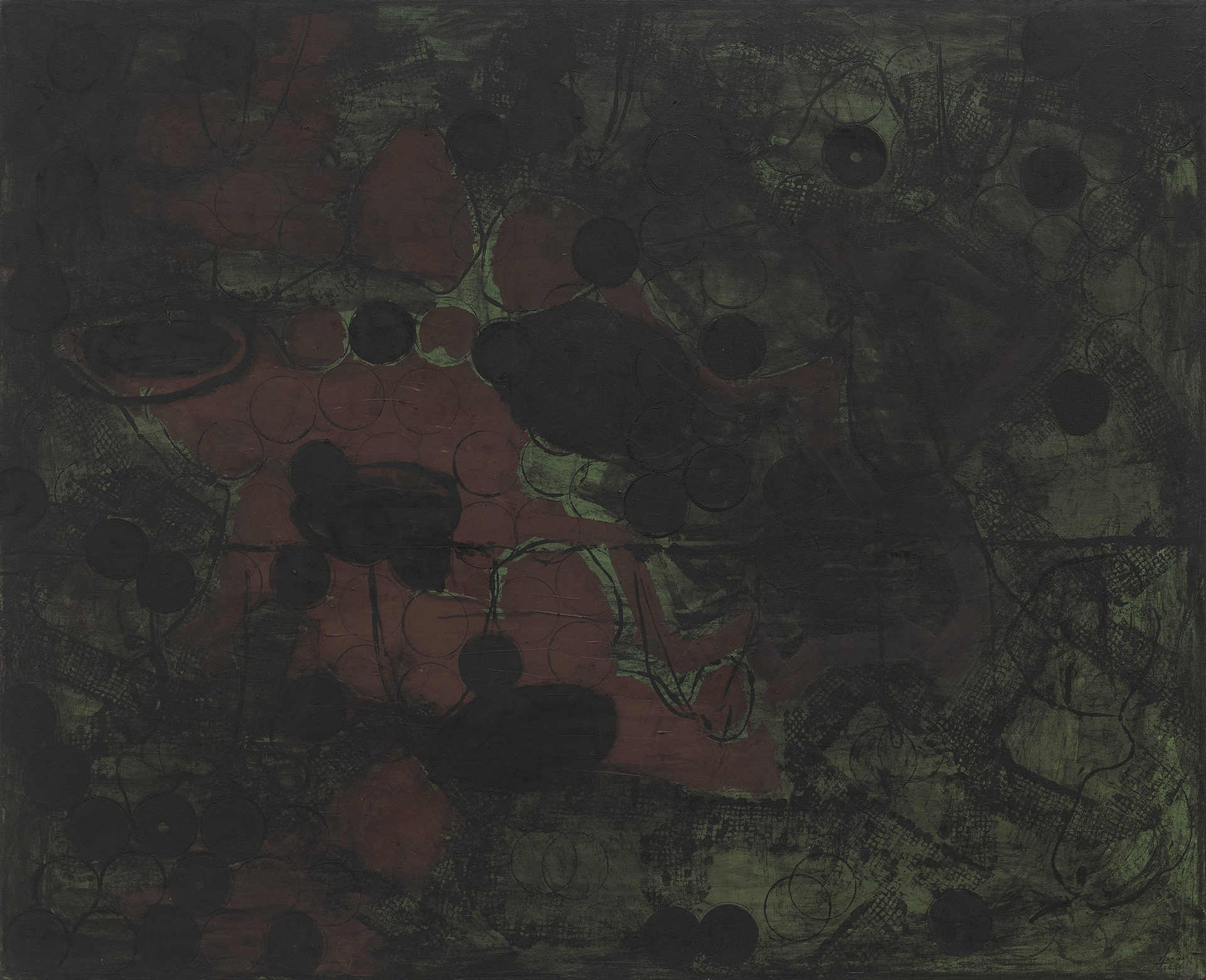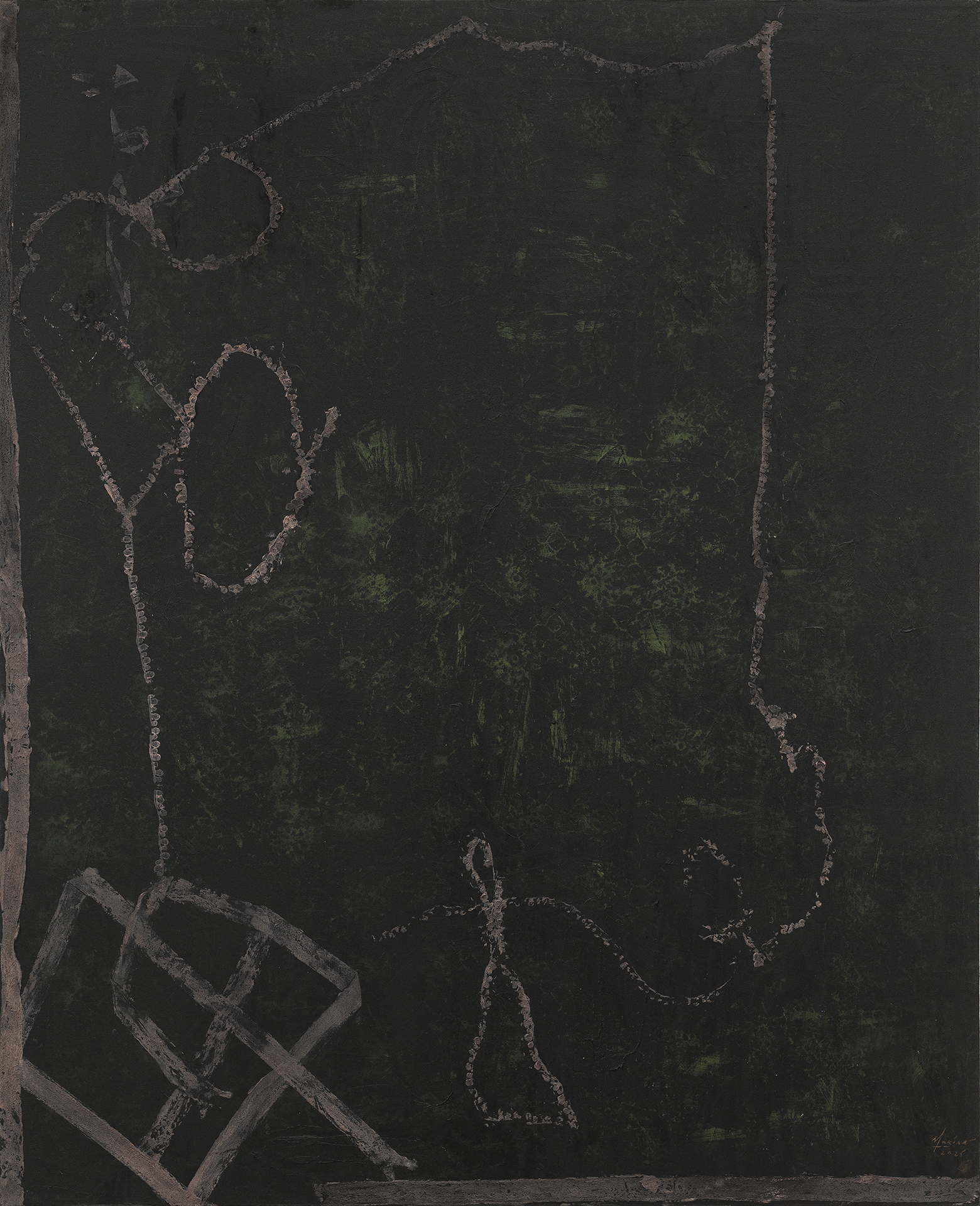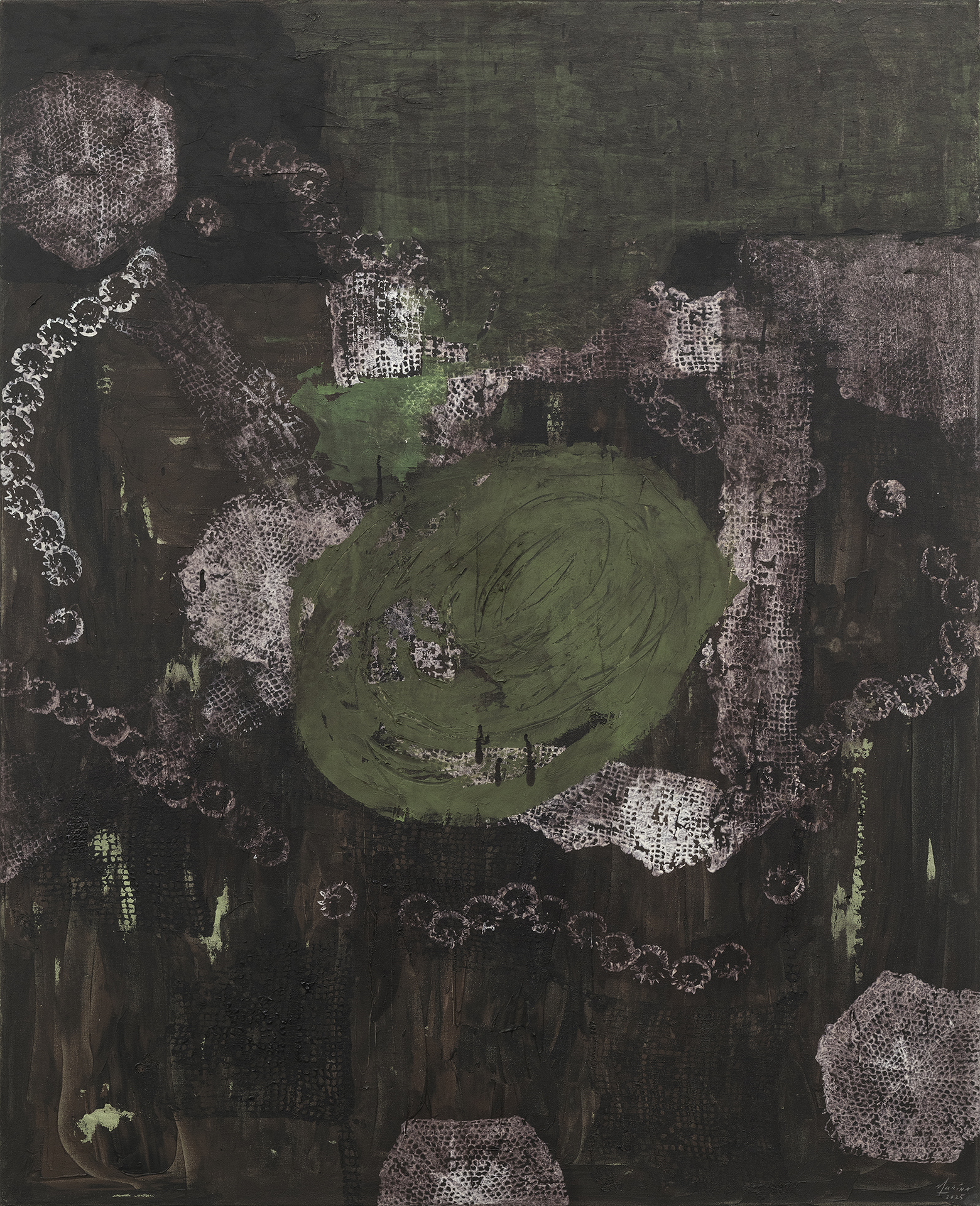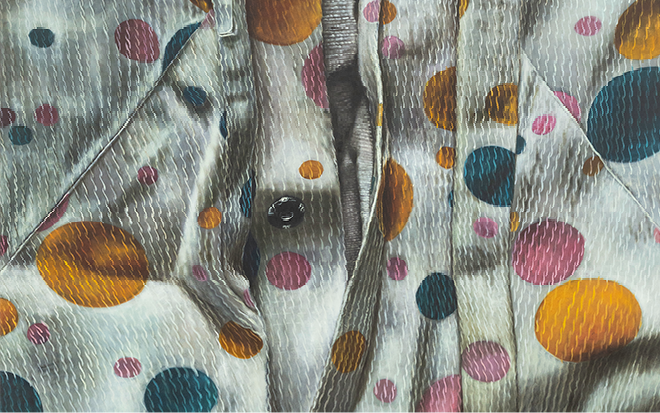
Fractured Fabric
Marina Cruz
Silverlens, Manila
About
In the early 2000s, when she was a fine arts student, Marina Cruz was fascinated with making abstract prints. She played with textures and compositions and wanted, in particular, to incorporate the pattern of gauze – a material that evokes a wound or fracture. She rummaged through closets in her grandmother’s home, hoping to find the fabric. Instead, she unearthed her mother’s old baptismal dress. Moved by the thought of her aging mother as a baby, she began to paint the clothes that her grandmother made for her children.
Over two decades later, Cruz remains fixated on her family’s yellowed fabrics. For her solo show Fractured Fabric, she uses the clothes to return to abstraction. As a show made of three series of works, one series does not depict pieces of clothing in their full form. Rather, Cruz focuses on their patterns, textures and minute details. A close-up painting of a dress’ armhole centers the tension of circles and pinstripes; a delicate ribbon crawls across a dark, painterly surface. The show captures the range of Cruz’s two-dimensional practice: paintings rendered in the artist’s signature photorealistic style juxtapose canvases dense with raw and loose markings.
The show also offers a glimpse into Cruz’s experimental process. In a series of collages, she stitched scraps of the garments onto canvases where she left splotches, rough strokes and organic patterns. Cruz describes these works as her “warm-ups” — small canvases where she lets herself loose and musters up the motivation to create. Crude horizontal lines recur in some of the works, alluding to the pad paper that she once used in elementary school. Though the works originated from a sense of childlike play, their results are more complex. Hazy portraits emerge at the center of each canvas; according to the artist, they are not specific people. They appear like figments of dreams, their obscurity contrasting the reality of the fabric scraps. In one piece, two floral scraps and a face belong inside one dark circle, as if part of one organism.
Abstraction, to Cruz, is more challenging than working from photographs, where the compositions are already set. Each brushstroke demands a decision, a confrontation with the volatility of one’s inner world.
A series of abstract, mixed media works poignantly captures the product of such confrontations. They contain imprints of cloths, which Cruz transferred through a print-like technique. Most of the fabrics are gauze-like, such as lace and crochet. Yet, where gauze is meant to cover and protect a wound, the cloths here are overpowered, frail. They no longer appear in vivid detail – instead, they haunt the surfaces, ghostlike.
In A Veil Left by the Tides of Life, a veil floats on a sea of thick violet paint. In Veins of Bandages, a translucent cloth snakes through a plane, which is washed in dried-blood red.
While these works veer away from realistic depictions, they hold the fabrics’ emotional weight. Cruz’s grandmother hailed from Hagonoy, Bulacan, a coastal town constantly battered by floods. Her family knows the pain of leaving your home behind, of watching your belongings rapidly decay. The abstract works thus evoke her family’s stubborn protection for the things that carry memory, no matter how tattered; these are their marks in a world that threatens to wash them away.
One painting in the show features a young girl’s red dress, suspended in a stark black field. It is one of only two paintings in the show that captures a piece of clothing in its entirety. The dress is filled with white polka dots — a pattern that repeats among the other weathered clothes in the show, echoing a faded innocence. The painting, entitled Tender, feels fragile, almost painful. The dress’ holes and loose threads remind viewers of the bodies that once ran and played in these clothes, perhaps learning how it felt to fall and wound themselves.
When Cruz encountered her family’s old clothes in the early aughts, her mother had just been diagnosed with emphysema. Caring for her mother then, Cruz could not look away from the brittleness of both her body and these clothes. Her art thus dwells on what it means to preserve what is destined to deteriorate. Where others might quickly throw away a torn dress, her grandmother deemed it worth keeping. Cruz, in turn, saw it as worthy of becoming art. One day these works will fade too — but their stories will perhaps persist in another form, through another’s hands and care.
Fractured Fabric honors the scars of these fabrics. It traces the story of an artist searching for gauze, who instead found clothes with holes, stains and frayed edges — vulnerabilities through which she came to know the strength of the women who raised her.
— Nicole Soriano
Marina Cruz (b.1982) transforms garments into artefacts of family history and narratives on temporality, memory, and materiality. Her art serves as a conduit between the past and the present, bringing long-forgotten memories to contemporary times. Her works have been exhibited in Taiwan, Italy, Germany, and France. Cruz’s artworks are held in collections at institutions including the Taoyuan Museum of Fine Art, Antho-Life Art Foundation, the Menarco Vertical Museum Art Collection and the Pinto Art Museum. Silverlens proudly presents Marina Cruz’s first solo exhibition with the gallery, Fractured Fabric.
Installation Views
Works
